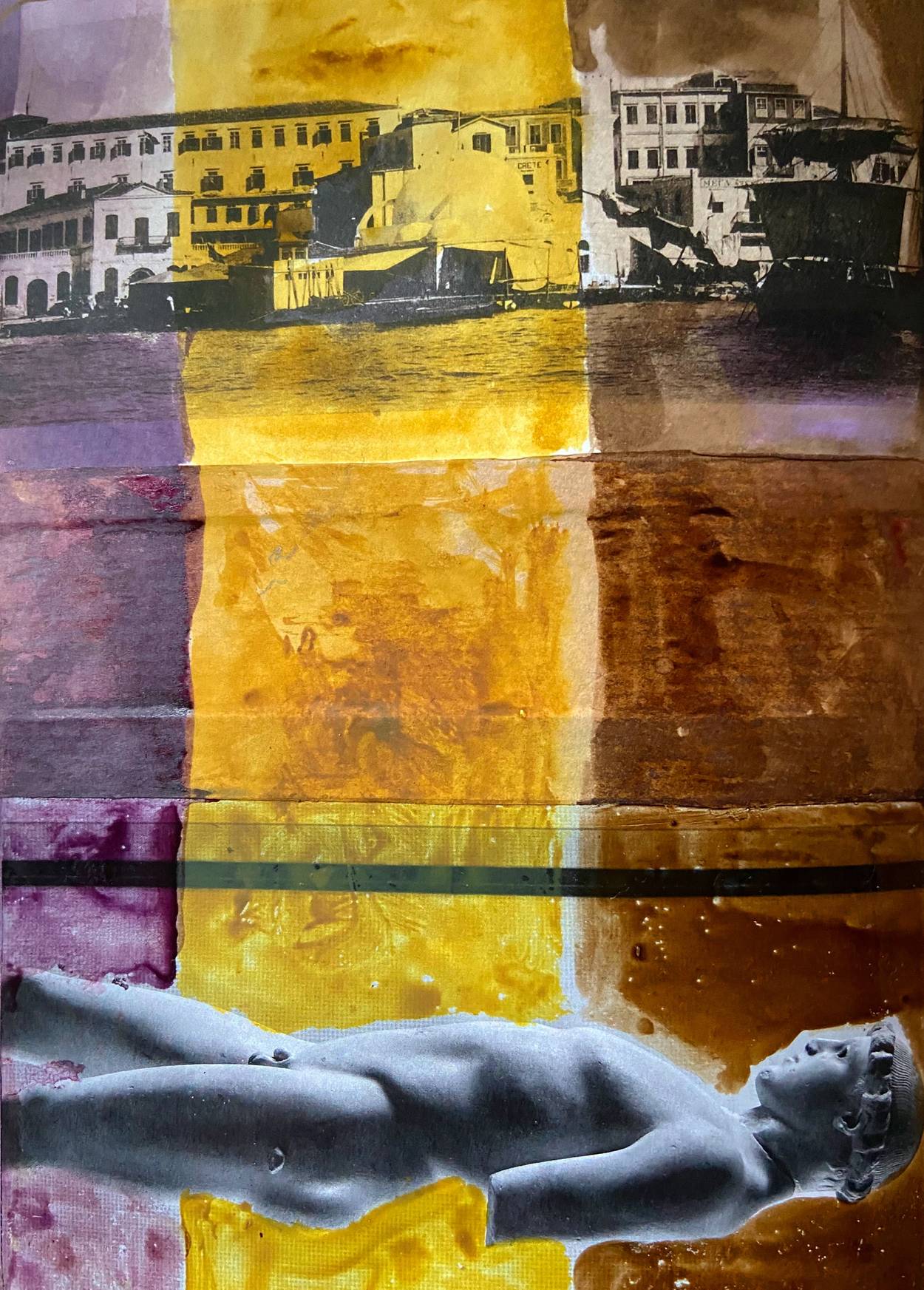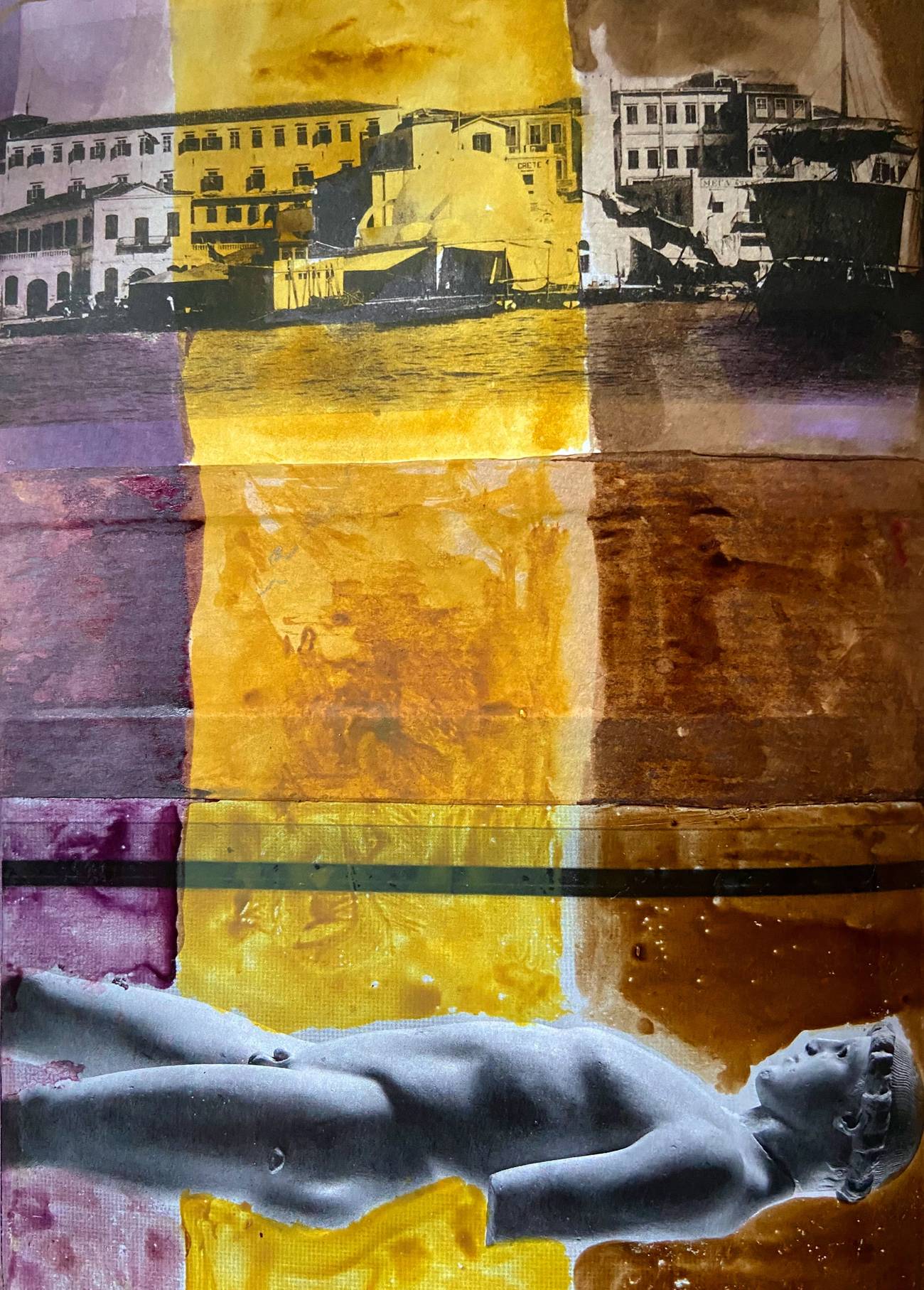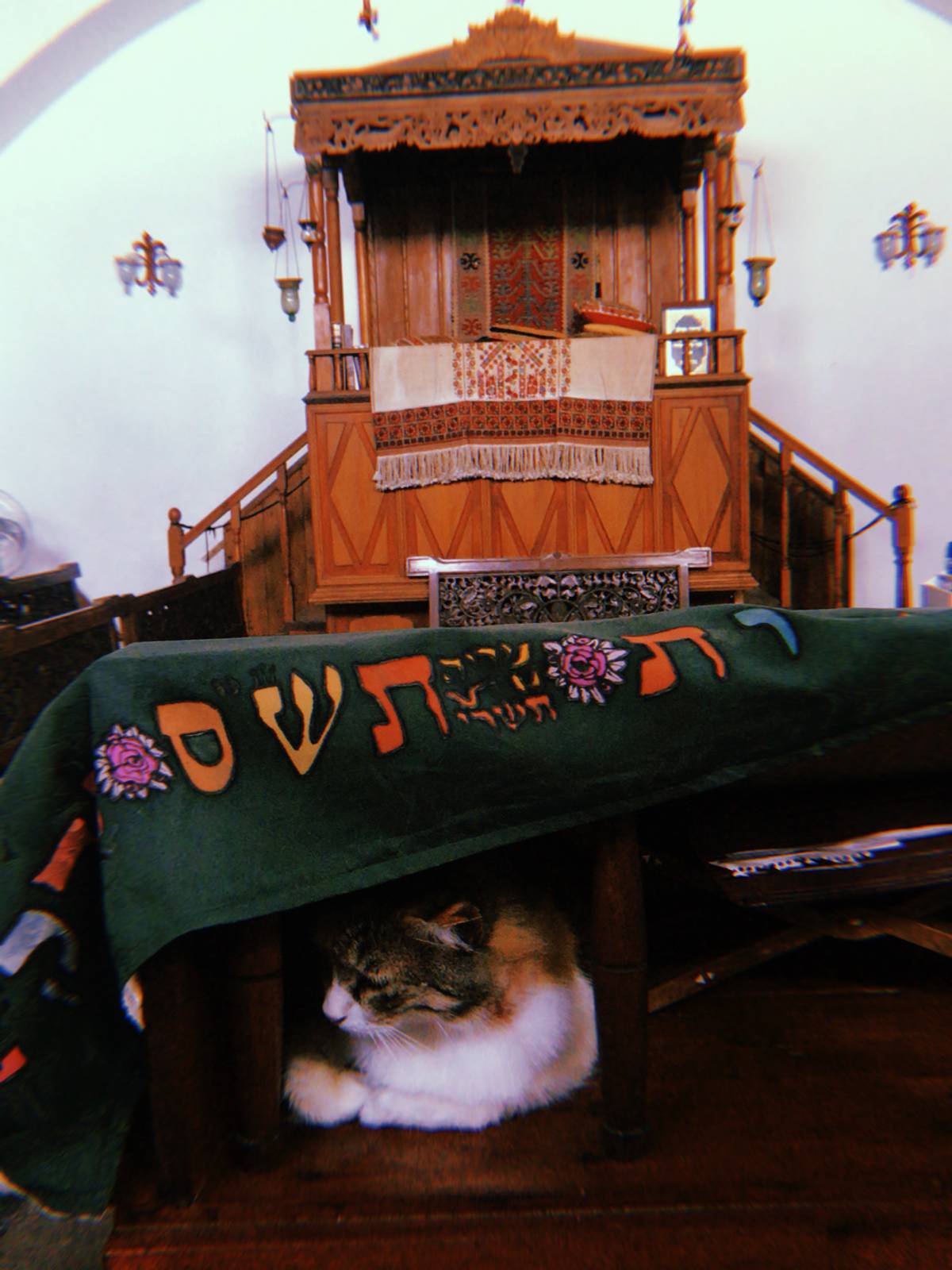A Jewish Vampire Story
The battle for the soul of a novelist, at Etz Hayyim Synagogue in Crete’s old Venetian port town of Chania




Perched next to a slumbering cat on a wooden bench under the pristine white walls of the Lilliputian Etz Hayyim Synagogue in Crete’s old Venetian port town of Chania would be the last place I would expect to run into an acquaintance. Certainly of the vampiric kind. Yet here was my etiolated Brazilian pal Francisco: slender, bespectacled, and no less feckless than the last time I had seen him in Odessa. He was an exquisitely wan representative of the saddest and most mundane specimen of our tribe: the blocked luftmensch. The nebbishy writer who cannot write and founds a kingdom of self-pity to explain the reasons why.
The pallid Francisco was a marginal figure of the sort who ensure the inner workings of a bureaucracy straight out of a Kafka tale. He had worked in the Brazilian Embassy of the Romanian capital Bucharest, by night translating minor modernist poets from the Romanian to Portuguese. He was one of those who would arrive in Odessa without understanding why, driven half by a treacly slavish sense of literature and half by an ambivalent attachment to his ancestry.
I had once commissioned Francisco to write an article about the Brazilian king’s 19th-century visit to Odessa. A seminal event, now forgotten. The last time I had seen him three years ago, we were having lunch in Odessa and I asked him whether he was interested in Gherssaim Luca, the Jewish Romanian surrealist author of the dadaist classic The Passive Vampire. Patron saint of the minor literati who leap off Parisian bridges. Francisco had lit up with sublime joy and informed me of his yearslong obsession with Luca. I immediately instructed him to write a book on the fantastical interwar theorist of the “Objectively Offered Object” (“an object that is bestowed only after having been stripped of its objective erotic character”), a quirky biography preferably, but a novel would do also. Surely the striking similarities between the two high-strung figures was excellent material for what we now refer to as “autobiographical metafiction.”

Three years later, Francisco seemed diffident and shy as usual, but I sensed immediately that he was more than usually sorrowful. What was the source of his current trouble? “I was born,” he told me with a rueful smile. He related to me his anguished sense of being lost, not knowing where he would go next, or what he would do. I reiterated my practical advice of three years ago that he write the great Brazilian-Romanian-gay-surrealist-Jewish-vampire novel.
Francisco was living in the volunteer housing studio owned by the synagogue. He had allowed an Algerian refugee drug dealer that he had met on the beach to live with him. The Algerian would occasionally steal all of his money and disappear for a week at a time as he searched for a woman to marry him so that he might receive Greek papers. The relationship sounded as if it might involve the occasional transfer of plasma.
We decided to go swimming under the stone walls of the city. In the warm lapping waves that crested at chest height, we swam. Francisco told me once again how lost he had felt, and how obsessed he was with his Jewish patrimony and Luca, the ghoulish surrealist. I jocularly began to refer to Francisco as Gherssaim and inquired of him what he wanted to do. He had no idea.
I informed him that he was merely a run-of-the-mill frustrated artist drinking himself to death and letting an Algerian guy who certainly did not love him beat him for his lunch money in the synagogue’s apartment as he lived off his meager inheritance. Francisco was the archetype of the weak, servile, hypersensitive artist in all of us that we need to either coax or hammer into submission. He was so guileless, pitiful, and sweet and hapless and I found myself overtaken by a mixture of tenderness and rage. I knew that I had no choice but to intervene in a humane and rabbinic fashion.
So I began to throttle Francisco brutally and to choke him mercilessly. I lowered my shoulder and rammed it into his chest at full strength, and picking him up by his waist I flipped him over and pinned him to the rocks under the waves, howling at him that he needed to “write the great Brazilian-Romanian-gay-surrealist-Jewish-vampire novel” or that I would kill him. He was petrified but also visibly thrilled that he felt some vitality for the first time in years. I began to push him under the water and to drown him, pushing his head under the water three times like it was a mikvah. I would purify him of the filth, I told him, and held his head under the water as he groveled for me to cease. “Vlad! Vlad,” he cried “you are drowning me! I am dying!” But he did not resist and I could have very easily drowned him.
I briefly contemplated finishing him off, but decided not to do it.
I wanted to transfer a part of my life force into him by force. “I am drowning! I will die here,” he begged me. “YOU ARE DEAD ALREADY MAMZER!” I howled and lifted him up over the waves before he lost consciousness, and commanded him to either walk on water like Christ or to stay under the waves. “Will you write the great Brazilian-Romanian-gay-surrealist-Jewish-vampire novel? Or do I have to kill you now?” I demanded.
“But who will read it?!?” he gurgled. Only 87 people will, but that does not particularly matter, I told him.
Vladislav Davidzon is Tablet’s European culture correspondent and a Ukrainian-American writer, translator, and critic. He is the Chief Editor of The Odessa Review and a Non-Resident Fellow at the Atlantic Council. He was born in Tashkent, Uzbekistan, and lives in Paris.